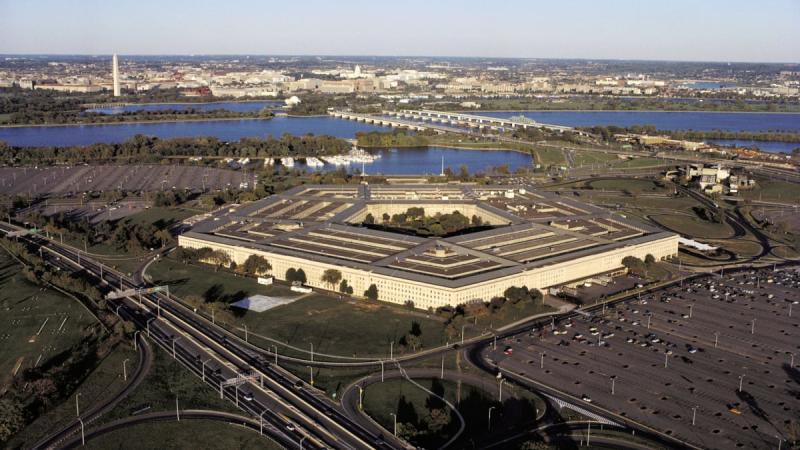Fake Pentagon explosion photo caused a real dip in the stock market | Mashable
Category: News & Politics
Via: perrie-halpern • 11 months ago • 6 commentsBy: Cecily Mauran (Mashable)



A deepfake of an explosion at the Pentagon that caused the stock market to dip exemplified the misinformation risks of generative AI.
On Monday, a seemingly AI-generated image of what looked like an explosion outside of the Pentagon circulated on Twitter. The Arlington Police Department quickly debunked the image tweeting, "There is NO explosion or incident taking place at or near the Pentagon reservation, and there is no immediate danger or hazards to the public."
But not before the stock market dipped by 0.26 percent before bouncing back, according to Insider(opens in a new tab).
It's unclear how the image was created, but it has the telltale signs of an AI-generated image. The fencing in front of the building is blurred and the columns appear to be different widths. Any social media sleuth accustomed to spotting photoshopped images of celebrities and influencers would have noticed this, but as generative AI continues to improve, deepfakes will be harder to spot.
Even with Arlington PD's quick response, Twitter's mess of a verification system compounded the issue. One of the accounts that tweeted the image was a verified account impersonating a Bloomberg news feed. That account, called @BloombergFeed, has since been suspended.
Other accounts that tweeted the image were @DeItaone and the account Russian state-media owned site RT. Now that anyone can pay to become verified on Twitter, situations like this are the perfect storm of misinformation.
Tweet may have been deleted (opens in a new tab)
A fake Twitter account shares a fake image that leads to real consequences. Welcome to 2023.






Read more here:
It's a brave new world.
Because of AI, you cannot trust the truth of what you read or hear or see, unless you have seen it live with your own eyes, and even then you need to be careful. Life was SO much simpler back in the 1950s, back in the days when people didn't lock their house or car doors and kids played outside from dawn till dusk without anyone having to watch them. Of course these days you don't have to watch them either - they're playing video games in the house.
Those were the days when there was an award for the most unbiased newspaper (The Christian Science Monitor won it most of the time), we didn't need a fact check for Walter Cronkite, and Paul Harvey told us the rest of the story.
oh boy..I foresee terrible trouble
So do I. There will be fakes of politicians and of anyone. Someone that is seen as an enemy can have some fake video made of them saying shit they never did.
To me, the important bit of news is that Twitter influenced the stock market. Whether or not artificial intelligence was involved in creating the fake, the publishing and distribution of the fake appears to have been limited to Twitter according to the seed. So, the rational conclusion is that Twitter, itself, has the ability to influence the stock market with both fake and real stories.
Why would unvetted social media have as much (possibly more) influence on institutional activity than vetted news media? Seems the real issue is trust in sources of news rather than capabilities of AI.